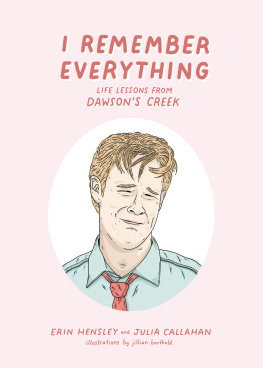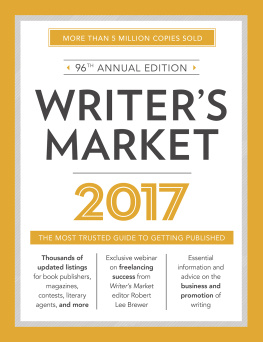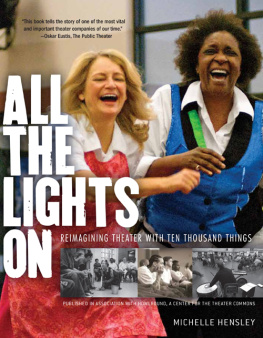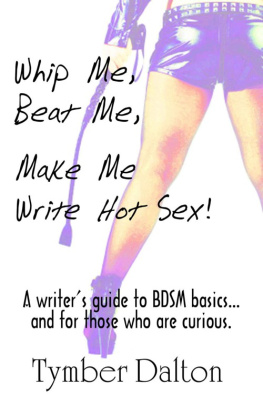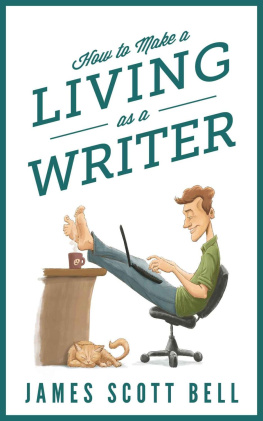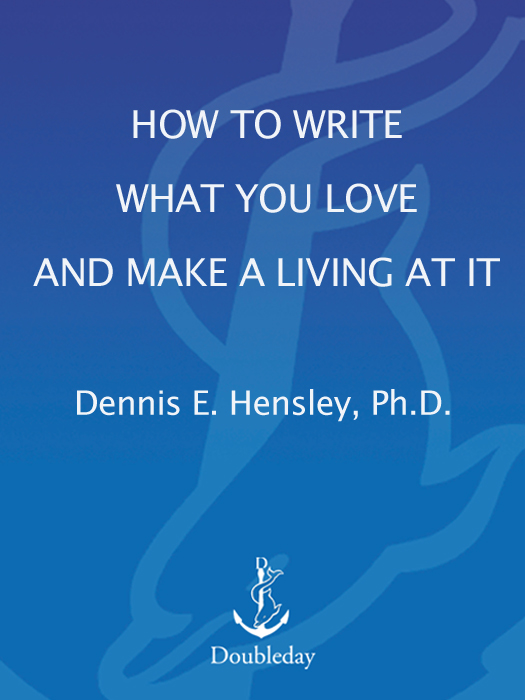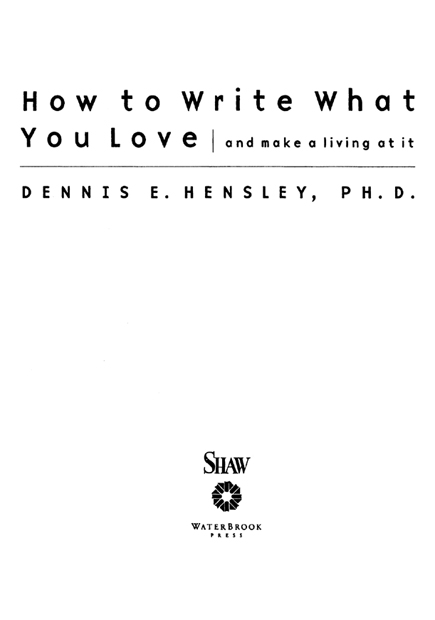How to Write What You Love and Make a Living At It
A S HAW B OOK
P UBLISHED BY W ATER B ROOK P RESS
12265 Oracle Boulevard, Suite 200
Colorado Springs, CO 80921
Scripture taken from the New King James Version. Copyright 1982 by Thomas Nelson, Inc. Used by permission. All rights reserved.
Legal issues (regarding libel, contracts, rights, etc.) in this book are presented as merely introductory guidelines. The information should not be, nor does the the publisher assume responsibilty for it to be, considered legal advice.
eISBN: 978-0-307-77964-9
Copyright 2000 by Dennis E. Hensley
All rights reserved. No part of this book may be reproduced or transmitted in any form or by any means, electronic or mechanical, including photocopying and recording, or by any information storage and retrieval system, without written permission from the publisher.
Published in the United States by WaterBrook Multnomah,
an imprint of the Crown Publishing Group,
a division of Random House Inc., New York.
Library of Congress Cataloging-in-Publication Data [to come]
v3.1
This book is affectionately dedicated
to the one person who, since childhood,
has encouraged me to write on and on:
my brother, Gary A. Hensley
accountant, journalist, writer, pal.
CONTENTS
ACKNOWLEDGMENTS
I wish to thank Joan Guest of Harold Shaw Publishers for believing in this book project and for her constant encouragement. I wish to thank Pamela Rice Hahn for helping me through the technical formatting of this manuscript. Additional thanks go to my friend and colleague Dr. Pam Jordan, chair of the Taylor University Fort Wayne English department, who helped me develop the Professional Writing major for our campus. The major puts into practice many of the concepts found in this text. And finally, a tip of the hat goes to longtime writer and editor friends who have encouraged me for many years: Lin Johnson, Bill Myers, Jim Riordan, Holly G. Miller, Bob Hostetler, Clare Seffrin Bond, Reg Forder, Peter Rubie, Rick Hill, Jerry Jenkins, Liz Curtis Higgs, Earl Conn, Joan Alexander, John Ingrisano, Michael Smith, Jim Watkins, Sally E. Stuart, Janette Oke, Steve Laube, Michael Landon, Jr., and Linda McGinn.
FOREWORD
Dennis E. Hensleys word processor must be wired for 220 volts! This energetic author has not only written thirty-one books, ghostwritten eighteen other books, and sold more than 3,000 freelance articles, but he also manages to be a popular university professor and writers conference speaker.
His high-voltage seminars, now captured herein, will energize your writing and freelance careereven if youre not a human dynamo.
Though Im wired for much lower voltage than my friend Dennis, Ive used his principles and have published eleven books and some 1,200 articlesall while maintaining a busy speaking schedule and managing to have a family life.
This latest book shares Hensleys secrets for becoming a successful freelance writer: what to write about, how to write with a distinctive style, how to land a literary agent or negotiate your own contract, and so much more. This wired book is both highly motivational and, at the same time, extremely practical.
So, start turning pages and get charged up!
Jim Watkins
PREFACE
When I originally wrote the text of my first book about professional writing, The Freelancer, back in 1985, word processors were new and the Internet had not even been thought of. Today, you cannot write for a target market without being aware of all the opportunities available in both the standard print media and the on-line media. That is why Ive had a strong desire to write this new book. Many of the basic lessons found in my six earlier books on writing regarding writing, editing, proofreading, researching, interviewing, and marketing are still valid; so, they are condensed and included in this text. However, all of these sections have now been enhanced to include insights into the world of on-line capabilities.
Whereas magazine formats may have changed during the past few decades, the fact remains that computers and word processors have not replaced the writers role in the communication network. Computers dont dream, but writers do. Computers dont fantasize, but writers do. Computers dont write jokes or act out scenes or cry or scream or feel love or anger, but writers do.
In truth, the only real word processor is still the human brain. That is why this book also focuses on writing we just like to do, even if it does not involve an assignment from an editor or an attempt to get published.
This book has been written to help you focus that personal word processor of yours (your marvelous brain) on an adventure in writing. You will be shown how to write and then how to sell what you write. If you have the desire to write, I have the techniques to show you how to do that.
Read now and enjoy becoming a writer.
Dr. Dennis E. Hensley
PART I

Becoming a
Freelance Writer
Three millennia ago Solomon noted, Of making many books there is no end (Ecclesiastes 12:12). He meant this as a lament. Here was a man who was seeking solace and comfort from books, yet he found pages filled only with random words, empty examples, and hollow stories. Surely this is a legacy no writer would want to leave.
The conscientious writer chooses topics for the takeaway value they will have to the reader, and not just for the sales those topics will generate. If you set your standards for high takeaway value in your manuscript, that means your reader will experience some growth or other benefit from that reading experience.
If you have thought about sitting down and dashing off a book about your life or work or interests, its time to think again. Professional writing cannot be dashed off. Its hard work.
For it to be legitimate and valuable, it must be contemporary, solid, precise, and interesting. Modern readers have huge expectations. Meeting such expectations is a challenge. Let me explain why this is true.
CHAPTER ONE
The Challenge of Writing
Robert Louis Stevenson was once asked if he loved to write. He replied, I hate to write, but I love to have written.
Anyone who has ever tried to work as a freelance writer understands Stevensons sentiments. Its a joy to see your byline in print, to receive a royalty check in the mail, and to get compliments from people who are enthusiastic about things you have written. However, getting to that stage of the game is the rough part. At times, a blank computer screen can be intimidating. Freelance writing is a very challenging career and one that should not be jumped into by starry-eyed individuals.
Writing is one of the oldest of all professions. As far back as Old Testament times, Job lamented, Oh, that my words were written! Oh, that they were inscribed in a book! (Job 19:23). Fortunately for the new writer, there is a wealth of recorded experience to draw upon. Novice writers can study the lessons passed on by the masters and, in so doing, avoid certain pitfalls. Just as we can learn by doing, we can also learn by reading what others have done.


